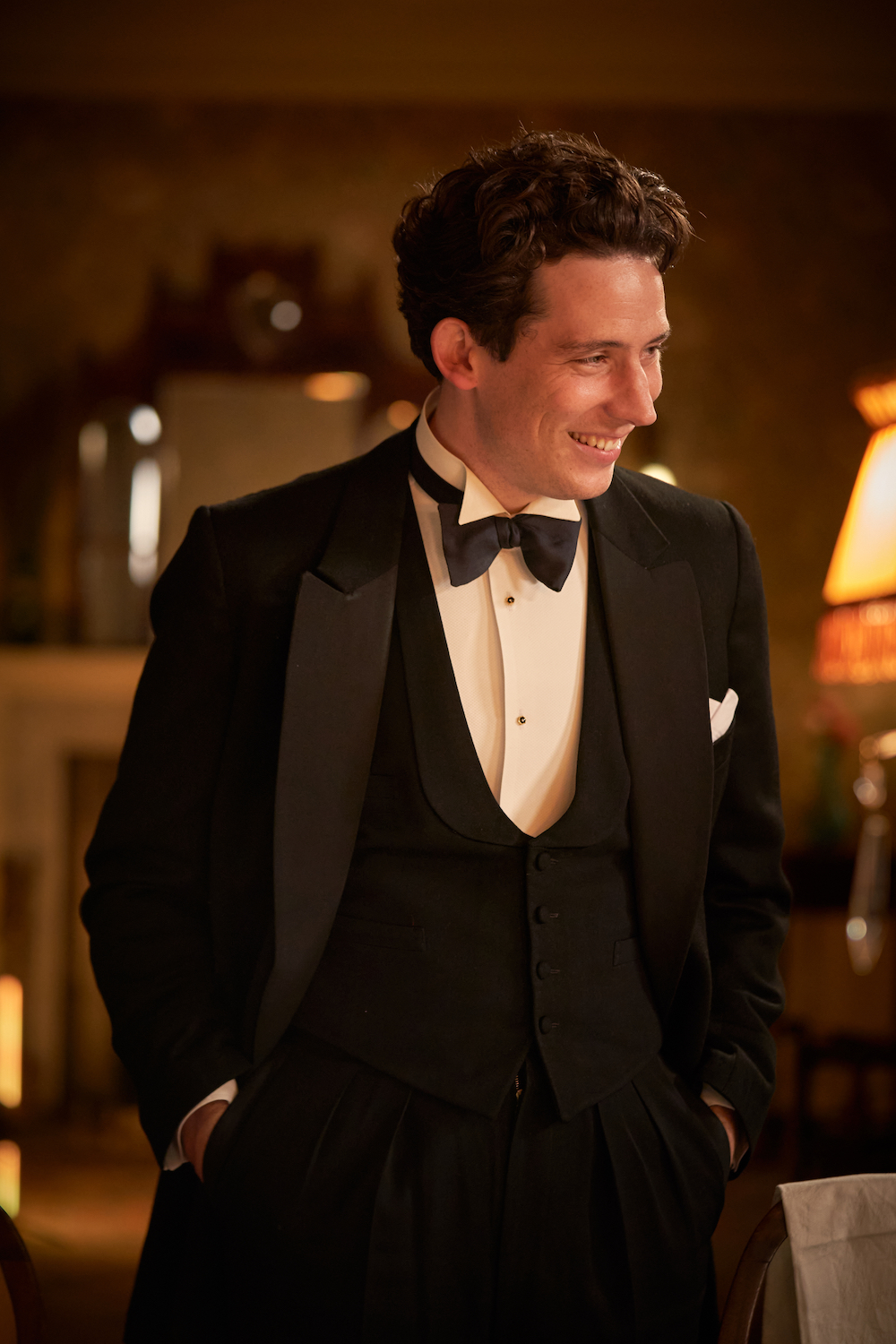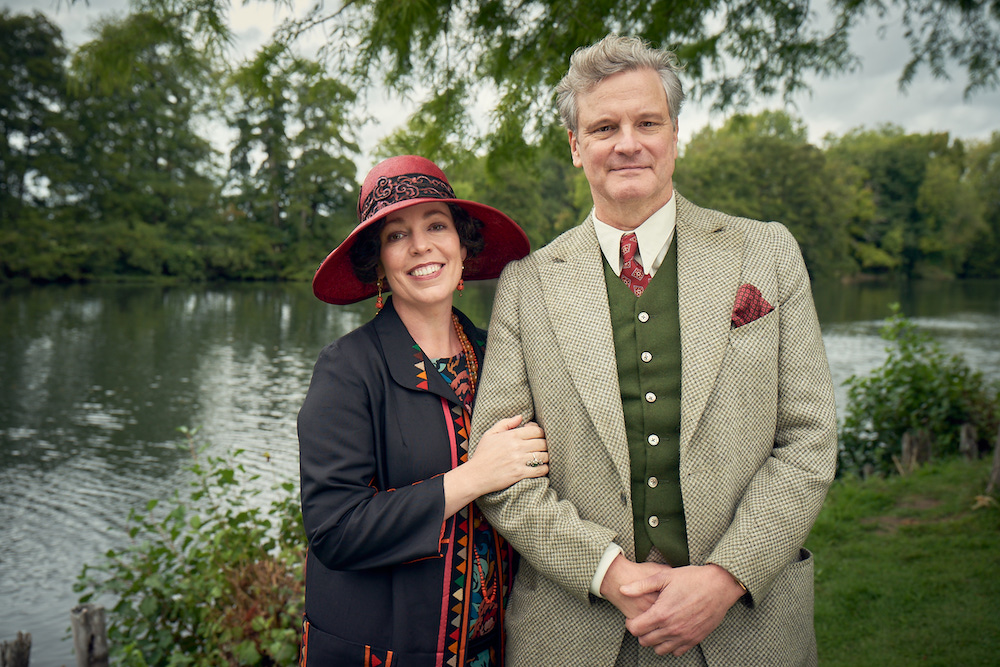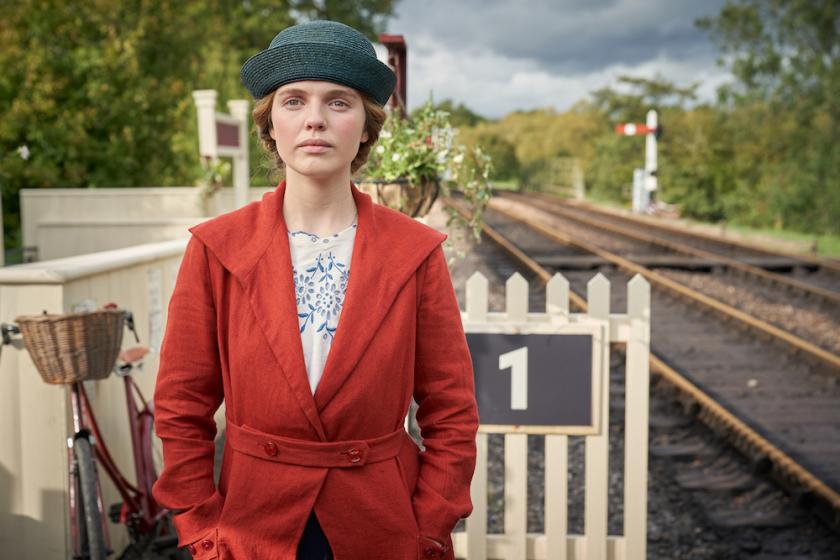30 March 1924. It’s Mothering Sunday – the precursor to the modern Mother’s Day - when domestic servants are given a day off to go home and visit their mothers, leaving their country-house employers with no one to make the veal and ham pie, do the dishes or change the sheets (stained sheets are of particular importance here).
Which is why young Berkshire squire and future lawyer Paul Sheringham (Josh O’Connor) is alone in the imposing family house, his parents having gone out to a lunch at a hotel in Henley, and why Jane Fairchild (Odessa Young; Shirley), an orphaned maid at a neighbouring house, can bicycle along bucolic lanes, her luxuriant hair wafting in the breeze, to visit him there undetected.
French director Eva Husson’s film, with a script by playwright Alice Birch (Anatomy of a Suicide; Normal People; she’s also worked as a story editor on Succession) doesn’t capture the subtle style or tone of Graham Swift’s novella, though Australian actress Odessa Young’s terrific performance saves it from becoming just another attractive, class-ridden period drama with splendid costumes by Sandy Powell and Colin Firth and Olivia Colman as reassuring stock-in-trades. Josh O’Connor (The Crown; God’s Own Country) as posh boy Paul (pictured above), the last surviving son of the Sheringham family – his brothers were killed in the First World War, as were the Niven sons in the house where Jane works - brings a fatal Prince-Charles plaintiveness to a part that should be all careless, entitled physicality. Though there’s certainly a lot of full-frontal nudity, bringing to mind Husson’s first feature, Bang Gang: A Modern Love Story (2015).
Josh O’Connor (The Crown; God’s Own Country) as posh boy Paul (pictured above), the last surviving son of the Sheringham family – his brothers were killed in the First World War, as were the Niven sons in the house where Jane works - brings a fatal Prince-Charles plaintiveness to a part that should be all careless, entitled physicality. Though there’s certainly a lot of full-frontal nudity, bringing to mind Husson’s first feature, Bang Gang: A Modern Love Story (2015).
But it’s Jane that carries off nudity so splendidly and life-affirmingly in this very un-modern love story. After sex with the doomed Paul – he drives off to Henley to meet his family and bride-to-be (Emma D’Arcy), a brittle flapper in bright green sunglasses who was going to marry one of his brothers – Jane wanders through the house alone and naked, taking her time to examine family portraits, appreciate the sumptuous décor and to tuck into that veal and ham pie.
In her early twenties, she has an impressive confidence and self-possession that transcends class. “You’re clever, Jane,” Paul tells her admiringly, as he gets dressed for lunch and looks at her haplessly as she lies on his bed, regarding him coolly in his striped tie and blue blazer. Is he having misgivings about his impending wedding? She’ll never know.
The whole point of the story is that yes, Jane is clever, and this terrible, beautiful spring day in March 1924 marks the start of her creative inspiration and future career as a brilliant novelist – quite a feat for an orphan who was placed in service at the age of 14, but as her philosopher husband Donald (Sope Dirisu; His House; Gangs of London) tells her in one of many flash-forwards, this allowed her to be an “occupational observer of life”.
She’s helped along by the kind, stoical Mr Niven (a tweed-suited Colin Firth) who lets her improve her vocab by reading books – Kidnapped and Treasure Island are favourites – in the house library. And there are interesting hints that Mr Niven may know more about Jane and Paul’s affair that he lets on. Perhaps he is a modern man in the making. Mrs Niven (Olivia Colman; pictured above with Colin Firth as Mr Niven) is too grief-stricken about her dead sons to see much beyond herself, and her outburst at the family lunch, putting paid to the everyone’s stiff-upper-lip politeness – “They’re all fucking gone” – is very moving (though would an upper-class woman have bandied the F-word around in the Twenties?) and a relief after the languorous pace of the previous scenes. Later she tells Jane how lucky she is, as a foundling, to have been comprehensively bereaved at birth. “It’s a gift, Jane, and you must learn to use it.”
Mrs Niven (Olivia Colman; pictured above with Colin Firth as Mr Niven) is too grief-stricken about her dead sons to see much beyond herself, and her outburst at the family lunch, putting paid to the everyone’s stiff-upper-lip politeness – “They’re all fucking gone” – is very moving (though would an upper-class woman have bandied the F-word around in the Twenties?) and a relief after the languorous pace of the previous scenes. Later she tells Jane how lucky she is, as a foundling, to have been comprehensively bereaved at birth. “It’s a gift, Jane, and you must learn to use it.”
Use it she does, getting a job in a bookshop, where the avuncular owner – she seems to attract them - gives her a typewriter, which makes becoming a writer easier, and where she meets Donald, a customer. Another doomed one, of course. “Maybe all the men in my life have to die in order for me to write my great book,” muses Jane, a bit too blithely. At the end, Glenda Jackson appears in a rather jarring cameo as the now famous octogenarian Jane, fending off, à la Doris Lessing, a posse of journalists at her doorstep. “I’ve won all the prizes,” she sighs. “It was inevitable. The task was impossible. But it was wonderful.” A little unconvincing, like the film itself.















Add comment